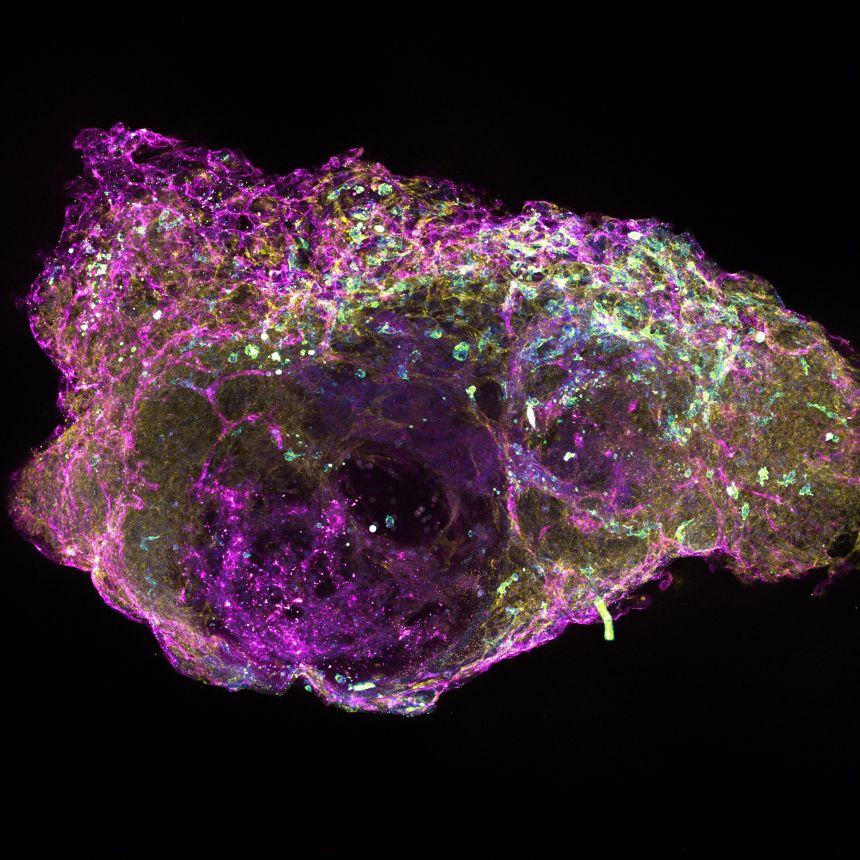Prof Bethan Psaila improving anti-cancer drugs
Professor Bethan Psaila is part of a team of scientists from Oxford University and the University of Birmingham making the first bone marrow 'organoids' that include all the key components of human marrow. This technology allows for the screening of multiple anti-cancer drugs at the same time, as well as testing personalised treatments for individual cancer patients.
'To properly understand how and why blood cancers develop, we need to use experimental systems that closely resemble how real human bone marrow works, which we haven’t really had before. It’s really exciting to now have this terrific system, as finally, we are able to study cancer directly using cells from our patients, rather than relying on animal models or other simpler systems that do not properly show us how the cancer is developing in the bone marrow in actual patients.
We hope that this new technique will help accelerate the discovery and testing of new blood cancer treatments, getting improved drugs for our patients to clinical trials faster.'
- Professor Bethan Psaila

A cross section of a mini bone marrow organoids showing cells that produce blood platelets, in a network of blood vessels. Image credit: Dr A Khan, University of Birmingham
The study, published in the journal Cancer Discovery, describes a new method using human stem cells grown in a specially designed 3D ‘scaffold’, to generate the key cell types that exist in human bone marrow (which is the factory that continuously produces circulating blood cells).
These new organoids can also keep cancer cells from blood cancer patients alive in the lab, something that was very difficult before. This means that doctors may now be able to test customised treatments for specific patients on their own cancer cells, to find the treatments most likely to treat the cancer.
This life-like architecture enabled the team to study how the cells in the bone marrow interact to support normal blood cell production, and how this is disturbed in bone marrow fibrosis (also known as myelofibrosis), where scar tissue builds up in the bone marrow, causing bone marrow failure. Bone marrow fibrosis can develop in patients with certain types of blood cancers, and remains incurable.
Blood cancers are the most common cancers to affect children, and amongst the ten most common cancers to affect adults. In adults, they remain largely incurable.
Discover more about New College



